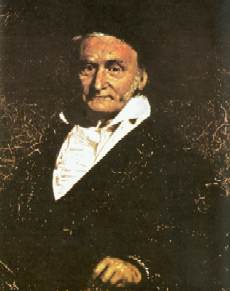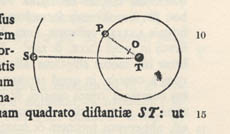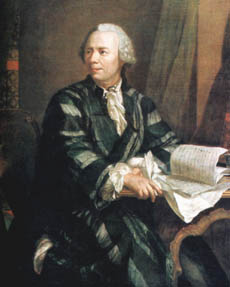Mathematics
- Mathematics is About the World, How Ayn Rand's Theory of Concepts Unlocks the False Alternatives Between Plato's Mathematical Universe and Hilbert's Game of Symbols by . What is mathematics about? Is there a mathematical universe glimpsed by a mathematical intuition? Or is mathematics an arbitrary game of symbols, with no inherent meaning, that somehow finds application to life on earth? Robert Knapp holds, on the contrary, that mathematics is about the world. His book develops and applies its alternative viewpoint, first, to elementary geometry and the number system and, then, to more advanced topics, such as topology and group representations. Its theme is that mathematics, however abstract, arises from and is shaped by requirements of indirect measurement. Eratosthenes, in 200 BC, demonstrated the power of indirect measurement when he estimated the circumference of the earth by measuring a shadow at noon, in Alexandria, on the day of the summer solstice. Establishing geometric relationships, solving equations, finding approximations, and, generally, discovering quantitative relationships are tools of indirect measurement: They are the core of mathematics, the drivers of its development, and the heart of its power to enhance our lives. (from the book's website)
- Mathematics for the Million, How to Master the Magic of Numbers by . Taking only the most elementary knowledge for granted, Lancelot Hogben leads readers of this famous book through the whole course from simple arithmetic to calculus. His illuminating explanation is addressed to the person who wants to understand the place of mathematics in modern civilization but who has been intimidated by its supposed difficulty. Mathematics is the language of size, shape, and order – a language Hogben shows one can both master and enjoy.
- Achilles, the Tortoise, and the Objectivity of Mathematics by .
Philosophers and mathematicians alike have long misunderstood the relation of mathematics to the real world and to the rest of human knowledge. A proper theory of concepts is essential to an understanding of the nature of math. Thanks to Ayn Rand, we now have the basis for such an understanding.
In this course, Dr. Corvini draws on Objectivist epistemology to offer a new identification of how mathematical concepts are related to physical concretes, including a new formulation of the concept of infinity. She uses the easy-to-visualize example of Achilles and the tortoise to make the ideas accessible to a general audience. In the process, she also identifies the fundamental error that underlies Zeno's famous paradox and that has long obstructed men's understanding of mathematical abstractions. Her analysis underscores the importance and power of Ayn Rand's theory of concepts.
(Of interest to anyone interested in epistemology; no prior mathematics background assumed.)
- The Language of Mathematics, Making the Invisible Visible by . The author chooses eight topics in mathematics and explains them clearly to a lay reader, so that, by the end of the book, one will be well equipped to understand what mathematics is and how we can use it to think scientifically.
- Feynman Lectures on Computation by . In characteristically original style, Feynman describes the fundamentals, the mathematics, and the physics of how computers work, including how quantum computers might be built in the future. Accompanying the lectures are problems for the student to work out, with the following advice:
Now there are two ways you can increase your understanding of these issues. One way is to remember the general ideas and then go home and try to figure out what commands you need and make sure you don't leave one out. Make the set shorter or longer for convenience and try to understand the tradeoffs by trying to do problems with your choice. This is the way I would do it because I have that kind of personality! It's the way I study -- to understand something by trying to work it out or, in other words, to understand something by creating it. Not creating it one hundred percent, of course; but taking a hint as to which direction to go but not remembering the details. These you work out for yourself.
The other way which is also valuable, is to read carefully how someone else did it. I find the first method best for me, once I have understood the basic idea. If I get stuck I look at a book that tells me how someone else did it. I turn the pages and I say 'Oh, I forgot that bit,' then close the book and carry on. Finally, after you've figured out how to do it you read how they did it and find out how dumb your solution is and how much more clever and efficient theirs is! But this way you can understand the cleverness of their ideas and have a framework in which to think about the problem. When I start straight off to read someone else's solution I find it boring and uninteresting, with no way of putting the whole picture together. At least, that's the way it works for me!
- Calculus Made Easy by . Preferably get the third edition. Originally published in 1910, it is not full of the hierarchical-inversions brought on by the "new math", nor is it anywhere near as rationalistic as standard math textbooks. Instead, it is a progression of essentials, beginning with identifying the essence of calculus, then working simple examples, then gradually increasing the complexity. Anyone wanting to understand calculus, and use it in real, applied situations, will find this book to be a vast improvement over standard textbooks.
- Against the Gods, The Remarkable Story of Risk by . Against the Gods, a narrative that reads like a novel, chronicles the remarkable intellectual adventure that liberated humanity from the oracles and soothsayers by means of the powerful tools of risk management that are available to us today. This is a richly-woven tale of Greek philosophers and Arab mathematicians, of merchants and scientists, gamblers and philosophers, world-renowned intellects and obscure but inspired amateurs who helped discover the modern methods of putting the future at the service of the present, replacing helplessness before the fates with choice and decision.
- A History of Pi by . An excellent history of mathematics from ancient Greece to the present, from the point of view of the discovery and use of pi, showing that advancements in knowledge occurred in cultures which prized reason and languished in irrational ones.
- Div, Grad, Curl, and All That, An Informal Text on Vector Calculus by . Even though the book treats a relatively advanced topic, this book may be the best math text I've ever used. I am recommending the book for its clear treatment of a difficult mathematical subject. I'm not making any claim about the text's underlying philosophy. -- Glenn Marcus
Links
- A Passion for Math: Elly Schofield at TEDxClaremontColleges – Math education fails students when it teaches them only to apply formulas. Math education needs to also teach how to solve problems, that is, how to formulate a problem in mathematical terms and how to productively attack a problem for which the student does not already have a formula.
- Archimedes's Palimpsest – The oldest surviving manuscript containing the work of Archimedes.
- Eric Weisstein's World of Mathematics
- Euclidia – Euclidean Constructions Made Fun to Play With, Euclidea is all about building geometric constructions using straightedge and compass. About doing it the fun way. With Euclidea you don’t need to think about cleanness or accuracy of your drawing, Euclidea will do it for you. But it’s also a game. A game that values simplicity and mathematical beauty. Find the most elegant solution, the one, which is built in the least possible moves, and you’ll get the highest score.
- Purple Math – Free math lessons from early algebra to the begininnings of triginometry, plus links to other math resources, plus fee-based math tutorials with videos, tests, and more.
Credits
- Contributor: Edward Matthews
- Contributor: Glenn Marcus
copyright © 2024 Andrew Layman, all rights reserved, 1/15/2024 6:08:32 PM, Topic: Mathematics, http://www.strongbrains.com

Karl Friedrich Gauss

Illustration from Newton's Philosophia Naturalis Principia Mathematica, 1726

Leonhard Euler

Isaac Newton